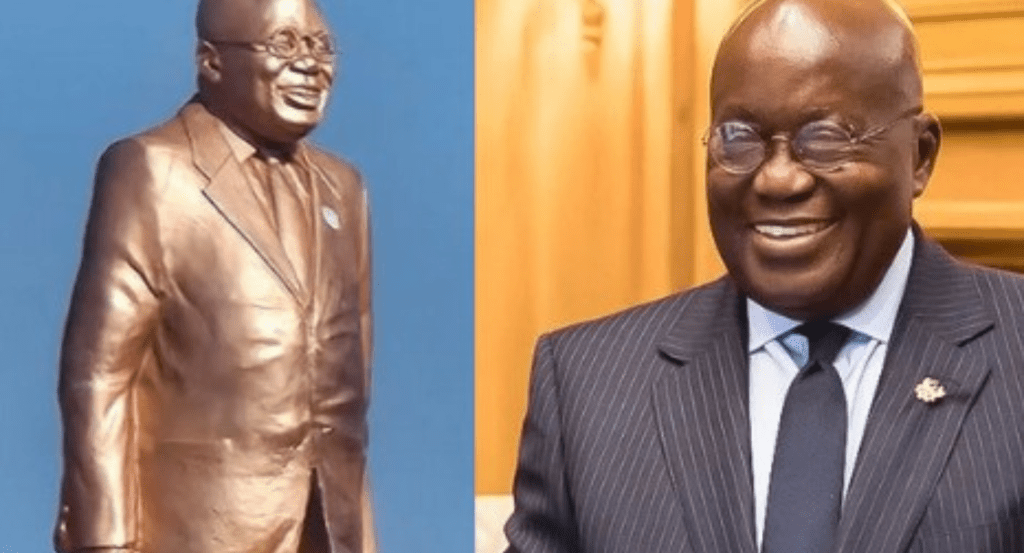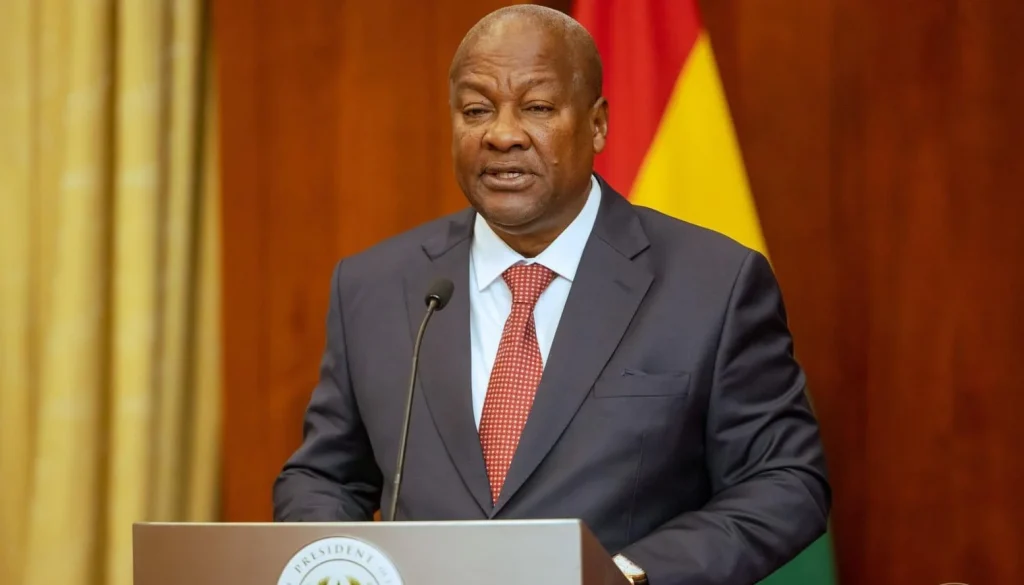Ghanaian President Nana Akufo-Addo recently unveiled a statue honoring himself, sparking widespread backlash across Ghana’s political and social landscape. The statue, reportedly commissioned to commemorate his contributions to Ghana’s development, has been criticized by citizens, opposition figures, and social commentators who question the appropriateness of a sitting president erecting a monument in his own honor.
Unveiled in the capital city of Accra, the statue has quickly become a controversial symbol, with many Ghanaians expressing frustration over the decision, which they perceive as self-aggrandizing and tone-deaf given the country’s economic challenges. Ghana, like many African nations, is grappling with inflation, unemployment, and economic strain, issues that have fueled public resentment toward the government. Critics argue that the funds used for the statue could have been better allocated to pressing national issues, including poverty alleviation, infrastructure improvement, and healthcare.
Leading opposition figures, as well as civic groups, have voiced their concerns, with some calling the statue a “vanity project” that is out of touch with the needs of the people. The National Democratic Congress (NDC), the main opposition party, publicly condemned the move, suggesting that it reflects a lack of humility and empathy on the part of the president.
Defending the statue, officials from the President’s office stated that it was intended to honor Akufo-Addo’s achievements and inspire future leaders. They highlighted his efforts to strengthen Ghana’s economy, promote regional stability, and improve educational access, noting that the statue is a symbolic gesture meant to recognize these accomplishments. However, this explanation has done little to quell the backlash, as public sentiment remains largely negative.
Ghanaians took to social media platforms in large numbers to express their disapproval, with many calling for the statue’s removal and advocating for a more people-focused approach from the government. Analysts believe that this incident may have political repercussions as the country approaches its next election, potentially affecting Akufo-Addo’s standing and the ruling party’s popularity.
The backlash has reignited discussions in Ghana about public accountability and responsible governance, with citizens emphasizing the need for leaders who prioritize the welfare of the people over personal accolades.























